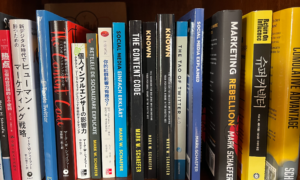It is a world of extreme flux that we live in. Under such circumstances, it becomes the untold responsibility of parents, policymakers, and schools to put in their due efforts such that students could be future-proofed. They need to be prepared to have 21st century skills. Let us explore these ideas further in this article.
We live in the age of Generative AI. Similarly, a host of disruptive technologies such as quantum computing are also taking over the world. These factors transform a student’s life holistically.
Civilization and society are dynamic. They are subject to change and that has always been the case. But the noteworthy point, here, is that in our times, this rate of change is highly accelerated.
Scientists have even gone on to say that the rate of change that we will experience in each decade that follows will be equivalent to the changes that would earlier have taken hundreds of years to take place. At this hour, when we consider planning for the future, it vastly encompasses bringing about such technological progress that induces massive change.
Now, when we consider the other most important agents of change in the world today, they include geo-political order and climate change.
So, overall, what should parents, policymakers, and schools be doing to ensure that they can safeguard students against the extreme flux that prevails in the environment? This should come in two ways. Firstly, one has to plan for what is likely to change and secondly, one has to prepare for what is likely to stay the same.
Preparing for change
New technologies will have an impact on all aspects of our existence. Under such circumstances, revamping school curriculums is no longer optional.
While Data Science and AI now need to be compulsory subjects for students, they should be taught in an age-appropriate manner right from the primary levels of education. These are just some of the 21st century skills for students to have. On the same coin, it is equally important to upskill coaches and teachers so that they are in the best position to help students learn these skills.
Fostering a closer connection of the industry with regulators, schools, and the private sector is also important. Regulators should frequently update the curriculum based on industry requirements. 21st century skills need to play a role in defining the curriculum.
Schools have an important role to play to ensure that the gap between the industry’s future requirements and the education system is bridged. Just as an instance, India’s several private schools are already engaging AI implementation coaches and champions. When schools collaborate, popularizing these best practices and 21st century skills simplifies.
Parents also have an important role to play in this regard and they need to provide their wards with the security and confidence to accept failures and take risks.
Keeping the focus on the matters that will stay
Even as we attempt to focus on matters that will stay, it has to be understood that forecasting is not easy. Matters such as the pandemic and other natural disasters have a bearing on our lives. But even as surprises are easy to find across our history, there is no dearth of everlasting wisdom. It is easy to see that the ongoing patterns and behaviors are the most important lessons that we stand to learn from history.
The focus has to be brought on matters such as communication which gives us the strength to collaborate and hold the key to human experience. Since strong communication skills are always valuable; schools and parents need to jointly work together to hone these skills. On their part, schools need to provide active programs to develop these skills for students. Parents, similarly, need to foster the right sort of environment at home to encourage curiosity and conversations.
Conclusion
Let us attempt to define the aim of a good education system. More than teaching the students what to learn, it is to teach students how to learn. Things are to change over the days and years to come because change is imminent. These times will be exciting but ridden with uncertainty. Creative policymaking will be a must in such times and so will collaboration between policymakers, educators, and parents.
This is hard to not see this as a paradigm shift that heralds the age of transforming geo-political world order, climate change, and AI. While the challenges posed are daunting, humanity has overcome and creatively resolved several existential challenges that earlier existed. We’ll come out strong this time over as well.




























